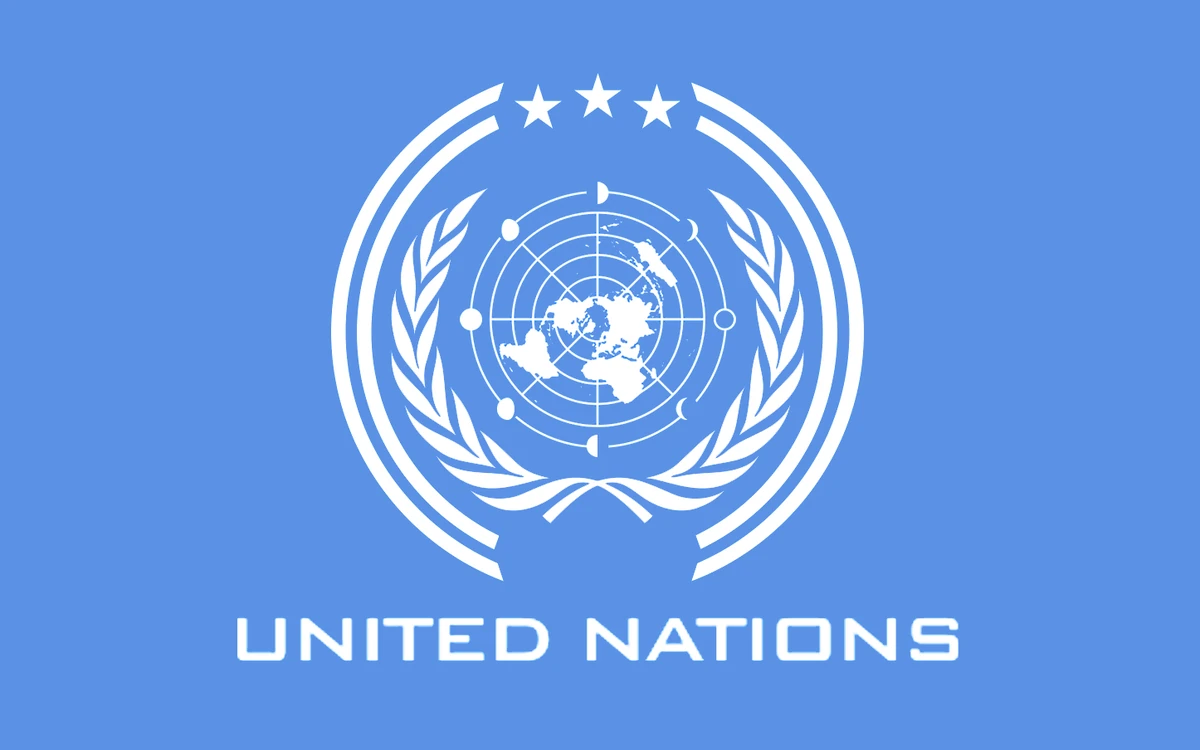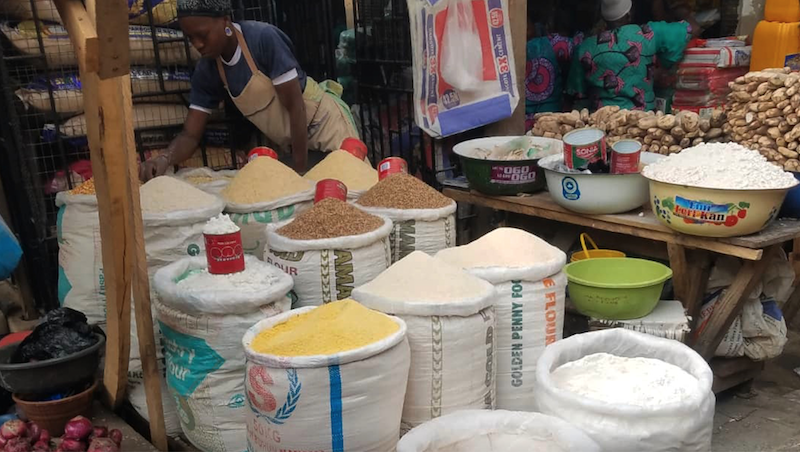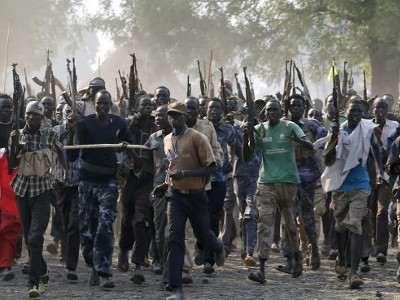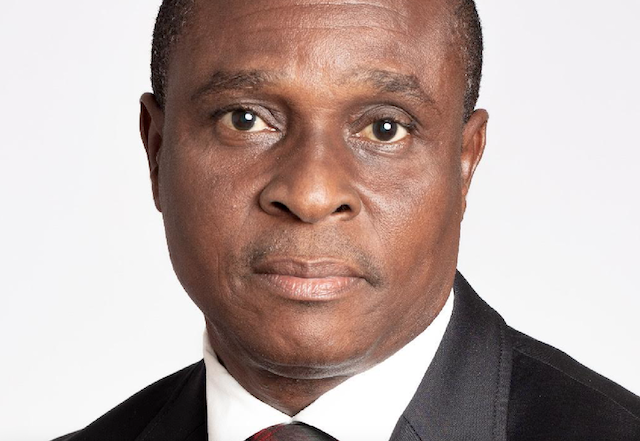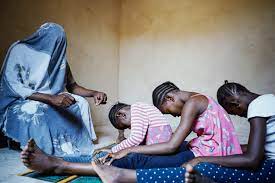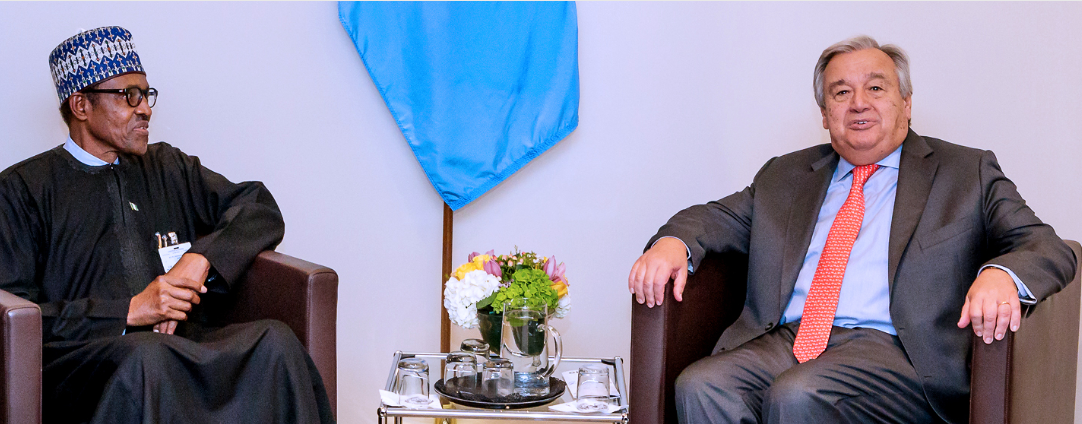The Earth is that planet where we live and work as inhabitants. So, we could actually say that humans are guests of the Earth because it provides them accommodation to develop themselves and add value to the existing structures they met in a lawful, aligning and developing manner. But have we achieved this task?
Man on earth today may be likened to the farmer who defecates along the path leading to his farm (his workplace) and often negligently forgets that he will have to walk that path again and again to reach his farm and the inevitable consequence is that on returning to his farm, he steps on his faeces and fouls himself thereby. Far worse than this illustration, humankind is increasingly becoming homeless, neither here nor there, thus also his continued existence on earth is being threatened– by himself through his increased misalignment with nature.
Indeed, we need a shift to a more sustainable economy that works for both people and the planet’s creatures, yet it is not only the trees, plants, animals, rocks, and so on that we physically, see around us that matters but also the gregarious species of nature. Thus, the plea by the UN to all of us ‘to promote harmony with nature and the Earth should be all-encompassing. If only humankind can leave nature to restore itself and focus on its primary task of developing itself, then the right balance will be achieved.
Earth Day and Humankind’s crime against nature
So, the United Nations, sounding somewhat conciliatory on this year’s Earth Day says urgent action is required to support our co-existence with nature. The global community is pained that nature’s consistent warnings and messages to humankind are unheeded. On April 22 this year’s Earth Day was marked. Yesterday, Monday, April 24, followed a UN Interactive Dialogue to celebrate the Day.
“Mother Earth is clearly urging a call to action. Nature is suffering. Oceans filling with plastic and turning more acidic. Extreme heat, wildfires and floods, have affected millions of people. Even these days, we are still trying to get back on track from COVID-19, a worldwide health pandemic linked to the health of our ecosystem,” UNCTAD lamented
Admitting to specific wrongdoings to our host community, the UN says, “Climate change, man-made changes to nature as well as crimes that disrupt biodiversity, such as deforestation, land-use change, intensified agriculture and livestock production or the growing illegal wildlife trade, can accelerate the speed of destruction of the planet.”
Notwithstanding the admission of guilt, the global community is doing absolutely significant to curtail its foray into nature and the ambitious quest of humankind to ‘conquer it” and subjugate it to ways known to foster this mad ambition. Instead of conquering, science could say work with nature to foster the development of that species and the human species.
Note here that the UN did not decry the intense energy release in military nuclear missile tests and its consequences on biodiversity and how the wrong accumulation of these energies and their carbon components destroy the ecosystem. Instead, it concentrated on the lesser activities common in less developed countries.
Contrary to the UN statement that “nature is suffering”, it is actually humanity that is bearing the brunt of its wrong activities in the accommodation that nature afforded it. Really, nature is not suffering if science did understand the species we call nature.
Mother Earth Day was celebrated for the second time on Saturday, 22 April 2023 “within the UN Decade on Ecosystem Restoration”. The UN believes that ecosystems should support all life on Earth. “The healthier our ecosystems are, the healthier the planet – and its people. Restoring our damaged ecosystems will help to end poverty, combat climate change and prevent mass extinction. But we will only succeed if everyone plays a part”. Yet again, it should be stressed that the humans inhabiting the earth and the nature therein should endeavour to understand its role to their host.
The Business of a Green Economy
Beyond contrite entreaties to all of earth’s inhabitants to work together towards averting the collapse of the ecosystem, it is business, economy and opportunities for prosperity that rule man’s engagement. Apparently, this thinking would not be wrong in itself but leads to the same destruction of the means of sustenance and sustainability of the earth’s ecosystems. Any disequilibrium, imbalance, inequity and injustice results in destruction. For, green technological development should not be about us only but about all creatures.
Out of 166 countries ranked in 2023 according to their adoption and adaptation of frontier green technologies, Nigeria is placed 119, an improvement of 5 places it occupied in 2022. At number 56, South Africa is the highest-ranked African country. Countries were ranked according to their ICT, Skills, R&D, Industry and Finance readiness. Green technologies refer to goods and services produced with little amounts of carbon footprints. These are new massive growth areas which increasingly provide economic opportunities, though the default is that developed economies are far ahead while developing countries could miss out significantly “unless national governments and the international community take decisive action.”
UNCTAD’s Technology and Innovation Report 2023 published about a month ago “warns that economic inequalities risk growing as developed countries reap most of the benefits of green technologies such as artificial intelligence, the Internet of Things and electric vehicles. This also includes solar and wind energy and green hydrogen.
Secretary-General of UNCTAD, Rebeca Grynspan notes with concern for developing countries; “We are at the beginning of a technological revolution based on green technologies” with its portentous impact on the global economy.
“Developing countries must capture more of the value being created in this technological revolution to grow their economies.” Grynspan added warning; “Missing this technological wave because of insufficient policy attention or lack of targeted investment in building capacities would have long-lasting negative implications.”
Market Size
While declaring in its report that developing countries are the least ready in the adoption of green technologies to grow their economies, “UNCTAD estimates that the 17 frontier technologies covered in the report could create a market of over $9.5 trillion by 2030 –about three times the current size of the Indian economy”. The report revealed that currently, developed economies are making the most of the emerging opportunities with leftovers for developing nations.
According to the report, the total exports of green technologies from developed countries jumped from around $60 billion in 2018 to over $156 billion in 2021. In the same period, exports from developing nations rose from $57 billion to only about $75 billion. In three years, developing countries’ share of global exports fell from over 48% to under 33%.”
UNCTAD’s analysis shows that developing countries must act quickly to benefit from this opportunity and move to a development trajectory leading to more diversified, productive and competitive economies. Previous technological revolutions have shown that early adopters can move ahead quickly and create lasting advantages.
International Cooperation
Much as the world body acknowledges the urgency necessary for developing countries to close the opportunity gap, it admitted that taking such advantages spawned by green technologies would not be easy unless domestic policies and global cooperation align with the Paris Agreement to harness the green economy.
UNCTAD proposed protectionist policies in international trade rules that should “permit developing countries to protect emerging green industries through tariffs, subsidies and public procurement – so that they not only meet local demand but also reach the economies of scale that make exports more competitive”. In addition, green technology transfer to developing countries is also critical to creating some trade balance in the emerging green economy.
The UN report wants to invoke the same principles applied to the COVID-19 pandemic, “when some countries were allowed to produce and supply vaccines without the consent of the patent holder” to enable manufacturers in developing countries quicker access to key green technologies.
It says international trade and related intellectual property rules should provide more flexibility for developing countries to develop industrial and innovation policies to nurture their nascent industries so that new green technology sectors can emerge there.
It is estimated that humanity (not the Earth) is losing 4.7 million hectares of forests every year to disruptive activities. Science finds that a healthy ecosystem helps to protect us from these diseases. While “biological diversity” makes it difficult for pathogens to spread rapidly. “It is estimated that around one million animal and plant species are now threatened with extinction”.
The real challenge facing us in the relationship with our planet is the scientific understanding of a holistic development that takes into consideration the fact that billions of years before mankind started living on earth, nature and its myriads of species had evolved and perfected their existence in what we now refer to as our ecosystem. Without nature, mankind would be unable to live on Earth. It would be uninhabitable! Therefore, harmony with nature is essential. However, this nature comprises not just what science can substantiate today but much more.
This year’s Earth Day should have afforded the UN and the global science community the opportunity to probe deeper into the comprehensiveness of nature and discover why mankind is the only species that disrupt the existing balance.
